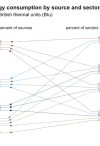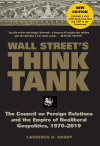Global

The promise of a world without disease has been replaced by warnings of evermore virulent pathogens, created by the very drugs that were supposed to save us. Scarcely a day passes without more news of people contracting infections or infectious diseases that cannot be cured by the strongest medicines available. Antimicrobial Resistance is a global health crisis driven by two major factors: the spectacular ability of bacteria to adapt to threats, and a pharmaceutical industry and health care system that puts profit before people. In addition to devastating climate change, the Anthropocene may be defined by epidemics that medicine cannot cure. | more…

Can economic growth continue forever? This relatively simple question has posed some intellectual headaches for modern capitalism. Capital cannot tolerate any limits—that is, the drive for growth and the search for new markets are both necessary for the political and economic survival of capitalism. Viewed in this light, the implications of the question present something of an existential challenge to the current order. Capitalism cannot acknowledge any natural limits to economic growth, for that would mean acknowledging its ultimate demise. To keep up the pretense that capitalism represents a quasi-eternal and invincible system, most political leaders and economists who support the current order have begun reciting a series of elaborate narratives about the relationship between human economies and the natural world. | more…

Situated largely within the Marxist debates on imperialism—but addressing the liberal formulations too—The Changing Face of Imperialism: Colonialism to Contemporary Capitalism is an important intervention regarding the material basis of imperialism and its three-hundred-year-old history of unequal power relations. The book broadly addresses five issues: (1) the nature of finance capital and the novel yet familiar processes of value extraction; (2) the world of capital; (3) global production networks and labor regimes; (4) the institutional system of nation-states in the new global order; and (5) the nature of integration from colonial regimes to now. | more…

The world is burning, flooding, and politically exploding, to the point where it’s become abundantly clear that neoliberal feminism—the kind that aims to elect The First Woman President—will never be enough. In her vibrant, politically personal essay, Zillah Eisenstein asks us to consider what it would mean to thread “socialism” to feminism; then, what it would mean to thread “abolitionism” to socialist feminism. Finally, she asks all of us, especially white women, to consider what it would mean to risk everything to abolish white supremacy, to uproot the structural knot of sex, race, gender, and class growing from that imperial whiteness. | more…

Although neoliberalism is widely recognized as the central political-ideological project of twenty-first-century capitalism, it is a term that is seldom uttered by those in power. Behind this particular ruse lies a deeply disturbing, even hellish, reality. Neoliberalism can be defined as an integrated ruling-class political-ideological project, associated with the rise of monopoly-finance capital, the principal strategic aim of which is to embed the state in capitalist market relations. Hence, the state’s traditional role in safeguarding social reproduction—if largely on capitalist-class terms—is now reduced solely to one of promoting capitalist reproduction. The goal is nothing less than the creation of an absolute capitalism. All of this serves to heighten the extreme human and ecological destructiveness that characterizes our time. | more…

The December 2018 issue of Monthly Review featured John Bellamy Foster and Brett Clark’s “Marx and Alienated Speciesism” and Christian Stache’s “On the Origins of Animalist Marxism: Rereading: Ted Benton and the Economic and Philosophic Manuscripts of 1844,” both of which take up Ted Benton’s work on animals and Marxism. Here Ted Benton offers a response to the critiques offered by Foster and Clark, and Stache. | more…

In this continuation of the exchange on “Marx and Alienated Speciesism” and “On the Origins of Animalist Marxism,” John Bellamy Foster and Brett Clark, and then Christian Stache, reply to Ted Benton. | more…

In the Notes from the Editors of the January 2019 issue of Monthly Review, the editors commented on a blog post by Michael Roberts on the term financialization. In the first part of this short exchange Roberts questions whether financialization is a meaningful and useful term, or simply a distraction from a comprehensive critique contemporary capitalism. | more…

A Reply to Michael Roberts
There has been a tendency within liberal analysis of financialization to place an emphasis on the trees, that is, the various speculative mechanisms, rather than the forest, or the growth of finance in relation to production. The reason for this stress on the trees rather than the forest is that, in contemporary capitalist ideology, financialization cannot be brought seriously into question since it is part of the entire architecture of accumulation. | more…

Your Socialism Depends on It
Revolting Prostitutes reminds readers that this struggle is at once bigger than any one sex worker’s immediate needs, but also must be precisely driven by these day-to-day needs. While this might at first seem contradictory, the book emphasizes how the collective workforce is constituted by individual workers with varied experiences, all of which are unique and valid. Narrative matters and, with Revolting Prostitutes, we are gifted one shaped by nuanced, considerate, care-informed members of the impacted working community. | more…

The Council on Foreign Relations is the world’s most powerful private foreign-policy think tank and membership organization. Dominated by Wall Street, it claims among its members a high percentage of past and present top U.S. government officials as well as corporate leaders and influential figures in the fields of education, media, law, and nonprofit work. Wall Street’s Think Tank follows the Council on Foreign Relations from the 1970s to the present, and this new paperback edition includes an Afterword discussing the Trump Administration and the Council. | more…

(Introduction by Aijaz Ahmad)
Radical political economist Samir Amin (1931–2018) left behind a cherished oeuvre of Marxist writings. Amin’s intellectual range—from economics to culture—was admirable, and his lessons remain essential. Monthly Review Press is honored to publish this volume, culled from the Monthly Review magazine, of ten of Samir Amin’s most significant essays written in the twenty-first century. The collection is introduced by Amin’s friend and comrade, the Marxist philosopher Aijaz Ahmad, who provides a comprehensive survey of Amin’s life and path-breaking work. Ahmad also offers a contextual focus by which to read such stunningly astute pieces as “Revolution or Decadence?” and “Contemporary Imperialism.” | more…











